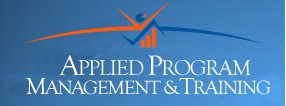| Soft skills training > Human Resources, Supervisors and Managers Training Library >Coaching: A Leadership Skill |
| |
| Coaching: A Leadership Skill |
|
| |
|
| Overview: Coach, Role Model, Counselor, Supporter, Guide...do these words ring a bell? Being a coach involves being a role model, sometimes a counselor or supporter and always a guide. Coaching is based on a partnership that involves giving both support and challenging opportunities to employees. Knowing how and when to coach is an essential skill that can benefit both you and your organization. |
|
| Course Objective |
|
|
Develop the coaching and counselling skills that help improve individual performance |
|
|
Demonstrate the behaviours and practices of an effective coach |
|
|
Understand how coaching can be used to develop your staff |
|
|
Uncover the employees’ strengths and give them the feedback they need to succeed |
|
|
Identify employee problems and ways you can help to correct them |
|
|
Motivate employees to do their best |
|
|
Conduct a successful coaching discussion |
|
| Workshop topics: |
|
|
The Benefits of coaching |
|
|
Characteristics of an effective coach |
|
|
The difference between feedback and coaching |
|
|
Stages and key elements of coaching |
|
|
|
How to apply the coaching stages to real life situations |
|
|
How to identify coaching situations |
|
|
How to recognize when an employee is falling short in his/her performance and what to do about it |
|
|
How to resolve problems that interfere with performance |
|
|
How to help employees be successful |
|
| The materials that participant will receive include: |
|
|
Student work book |
|
|
Classroom Exercise and Case study-Decision making and problem solving scenarios (these exercises are in the student workbook) |
|
|
Hand outs-certificate of achievement |
|
|
Recommended reading book list |
|
|
Class evaluation |
|


